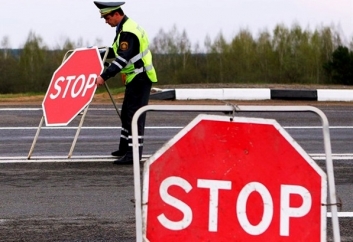Kremlin prevents Minsk from profiting too much from Eurasian integration
 The situation has not changed
The situation has not changed

Regardless of previous agreements, Belarus has faced a backlash from the Kremlin over its increased food exports – both domestically produced foods and those produced from raw materials originating in the EU which are on Russia’s sanctions list. Most likely, with the launch of the Eurasian Economic Union (EEU) in sight early next year, Moscow is attempting to prevent official Minsk from requesting additional compensation for possible losses in Eurasian integration. In response, the Belarusian authorities may delay enactment of some parts of the Eurasian Economic Union Agreement.
At a meeting with St. Petersburg Governer Mr Poltavchenko, President Lukashenko said that he was dismayed with Russia’s decision to restrict exports of Belarusian agricultural products.
In November, Russia imposed a ban on imports of meat and dairy products from almost 20 Belarusian companies “due to unacceptable levels of antibiotics, as well as Salmonella and Escherichia coli in the products produced by these companies”. Moreover, on November 30th, the Russian agricultural regulator decided to prohibit the transit of products on the sanctions list from Belarus via Russia to third countries without being inspected at Russian checkpoints. Moscow has accused Minsk of supplying food from the European Union to the Russian market under the guise of transit from Belarus to Kazakhstan Russia’s Federal Customs Service Public Relations Department head, Mr Smelyakov, underscored that exports of goods from the sanctions list from Belarus had increased by 80% (up to 354 600 tons) since the sanctions had been enacted in October 2014. However, Russia does not have direct evidence that Belarus has violated her agreements within the Customs Union and the Common Economic Space.
The Kremlin must have foreseen that Belarus and Kazakhstan would re-export some agricultural products from the European Union on the sanctions list. Especially because Moscow imposed sanctions without consulting with Minsk or Astana, thus disregarding their views as partners in the newly created Eurasian Economic Union. Kazakhstan supported Belarus’ stance and refused to participate in the trilateral consultations initiated by Russia about the ban on transit of products from the sanctions list from Belarus through Russia.
In addition, the Kremlin is not pressuring Kazakhstan as much as it does Belarus, which has been noted by President Lukashenko: “And besides, do you know what hurts? Let’s assume Kazakhstan faces similar problems as Belarus – then one phone call and all is well with Kazakhstan. I have the impression that Belarus is being a ‘test case’ once again, either for gas, or oil or agricultural issues, for the rest of the world – that they are trying to teach somebody a lesson. But we are not puppies to be taken by the scruff of our necks, excuse my sharp language”.
Most likely, the ‘agricultural war’, initiated by the Kremlin ahead of the EEU launch was meant to prevent Minsk from claiming additional compensation for losses from the Eurasian integration. Moscow’s resources have slumped significantly and they will struggle to support not only the loyalty of immediate allies, but also the Russian economy as a whole due to the confrontation with Western capitals.
However, in 2015 Minsk will require additional funds for the presidential campaign and public debt payments – around USD 4 billion. According to Belarus’ Deputy Finance Minister Mr Kiyko, the Kremlin has already agreed to leave export duties on oil products totalling USD 1.5 billion in the Belarusian budget – until 2025 (even though originally the agreement was only until 2025).
Despite his retaliation threats, President Lukashenko recently resumed his ‘Russo-Belarusian brotherhood’ rhetoric. In addition, the president is attempting to take advantage of Russia’s weakness and appeal to the EEU Treaty provisions which ensure the free movement of goods, services, capital and labour.
Overall, the Kremlin is not ready to increase support for the Belarusian economy within the Eurasian integration process at the cost of undermining its own interests. In the future, this may lead to increased tension in Russo-Belarusian relations, and further trade wars.
Subscribe to our newsletter




Situation in Belarus
Constitutional referendum: main consequences


 Video
Video
How to count the political prisoners: are the new criteria needed?


 Video
Video
Paternalism In Decline, Belarusian Euroscepticism, And The Influence Of Russia


 Video
Video











